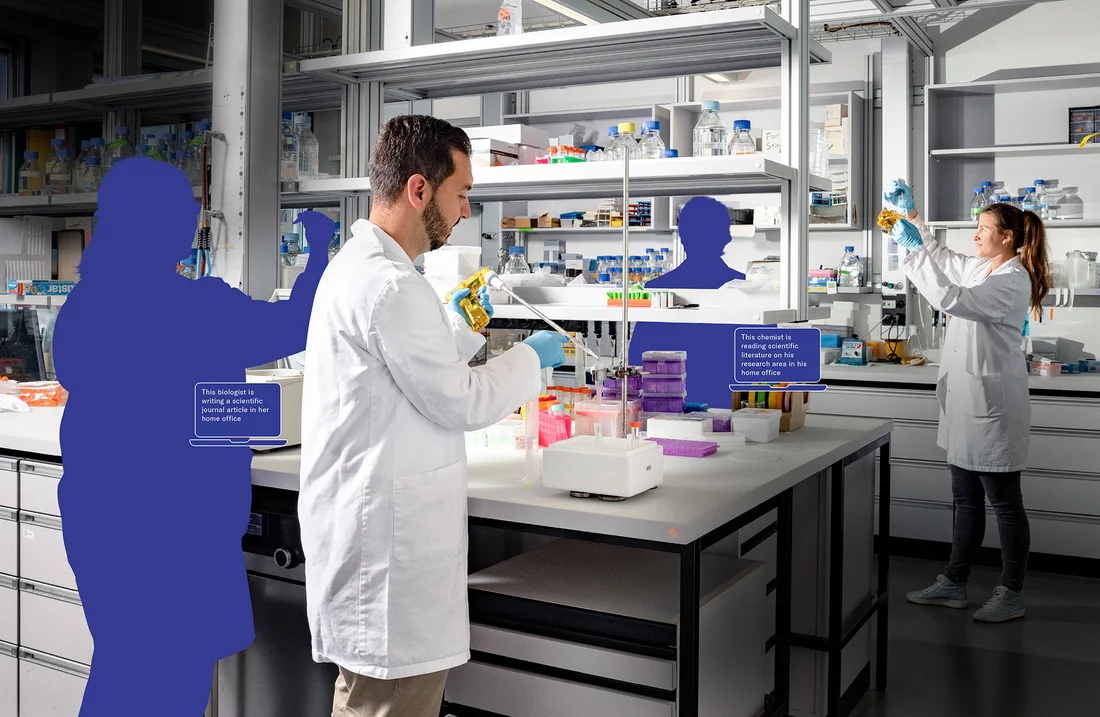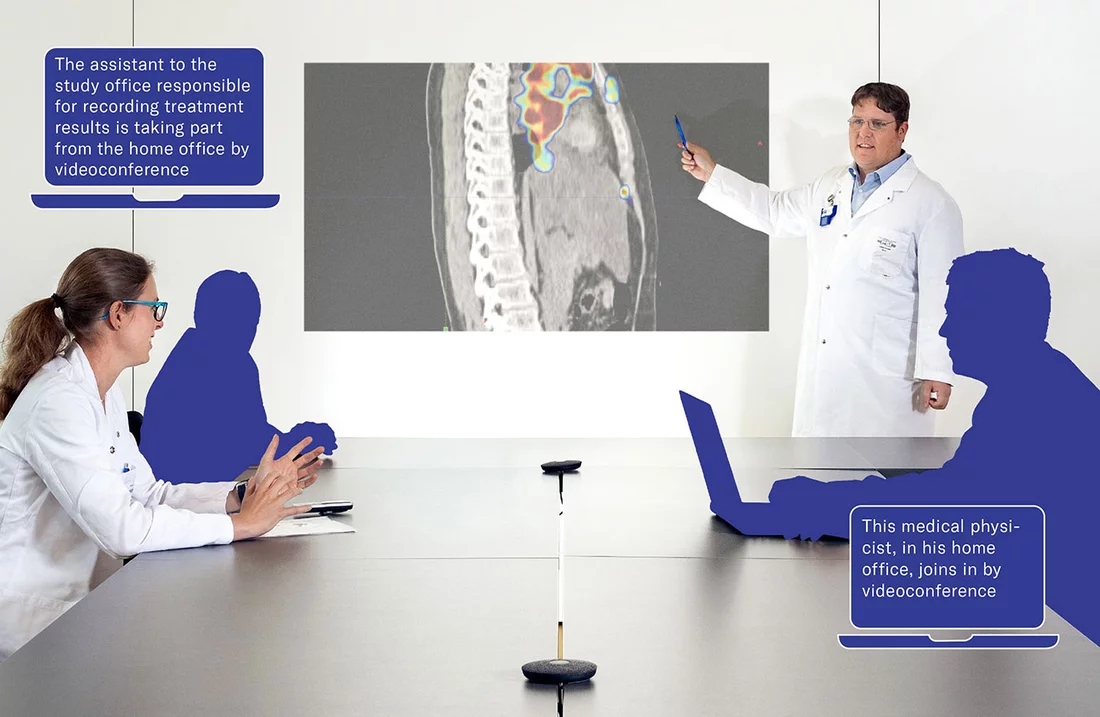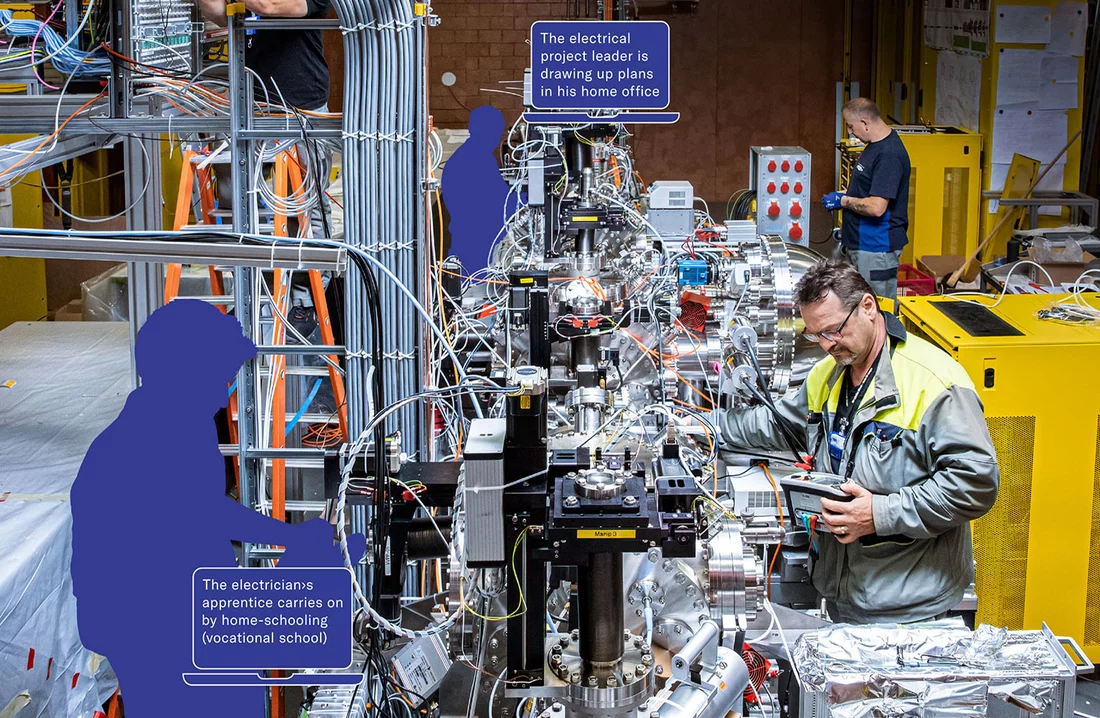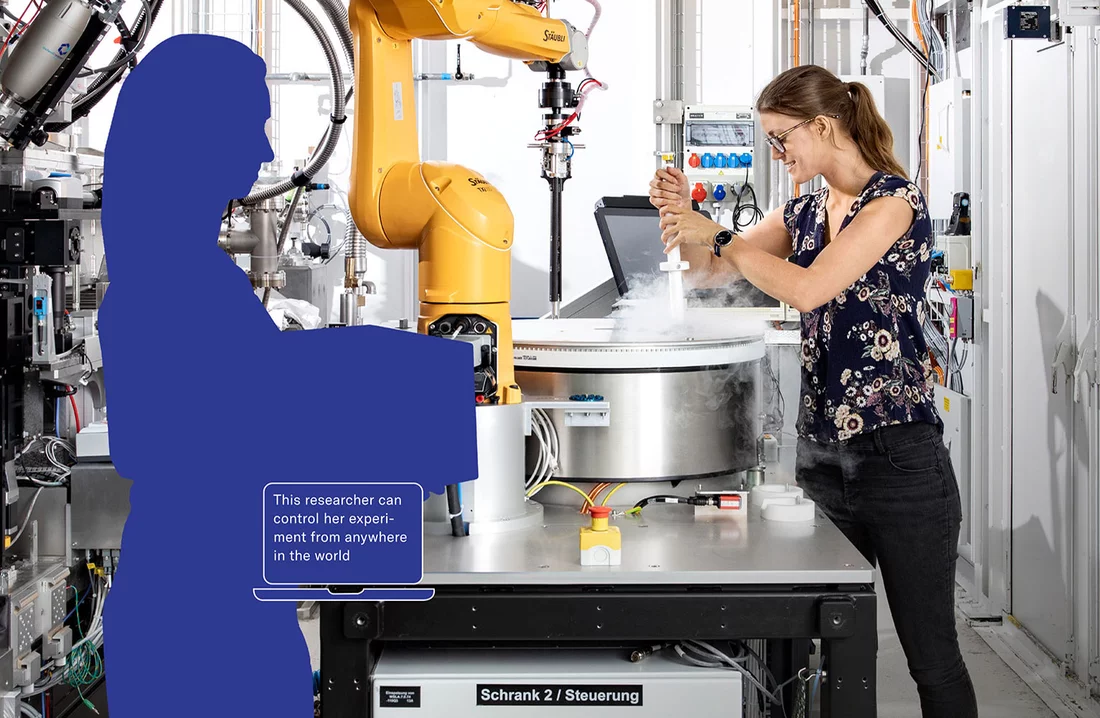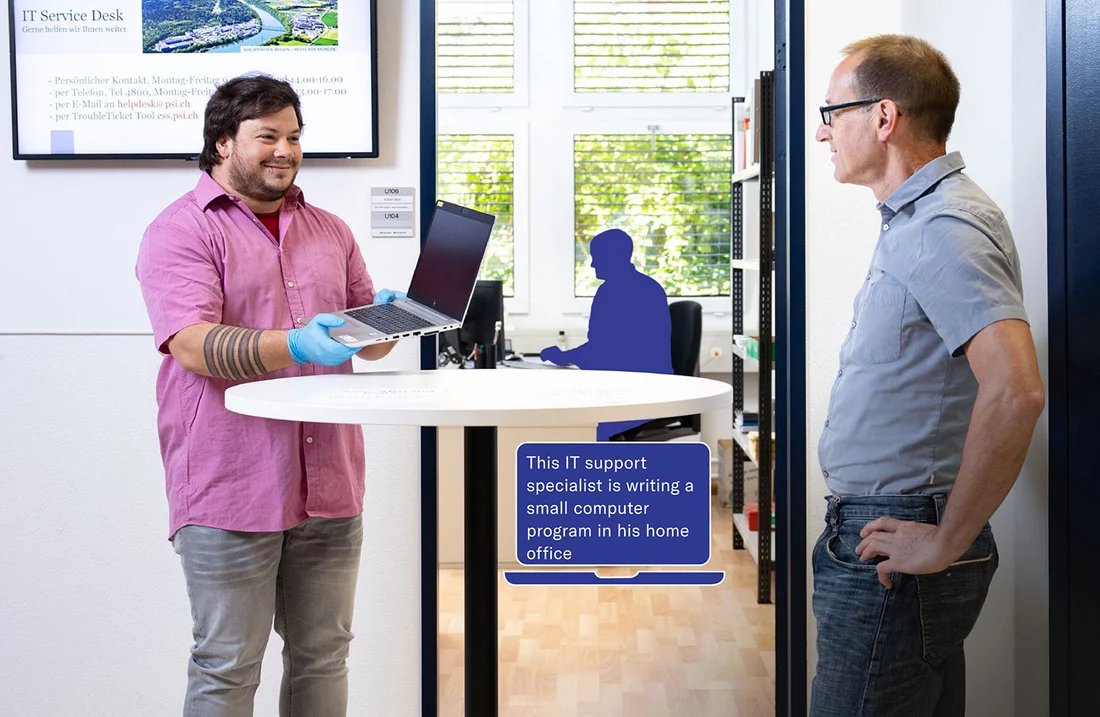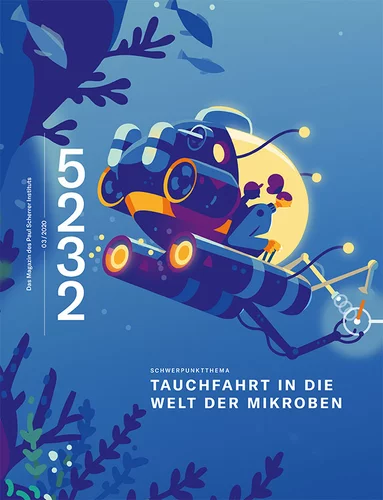Monday, 16 March 2020: The Swiss Federal Council reacts to the latest developments in the coronavirus pandemic and declares a nationwide state of emergency. On the same day, the Paul Scherrer Institute moves up to the third-highest level of operational restrictions, which allow at most only 20 percent of all PSI staff to be present at PSI. Everyone who can should work from home – according to the guidelines from the Federal Council. Five pictures tell the story of how research and operations nevertheless continued at PSI. Since October 2020, all PSI employees in comparable situations have been wearing masks in accordance with regulations.
Text: Christian Heid
Copyright
PSI provides image and/or video material free of charge for media coverage of the content of the above text. Use of this material for other purposes is not permitted. This also includes the transfer of the image and video material into databases as well as sale by third parties.

